In the quest for natural wellness solutions, few substances have garnered as much attention in recent years as the humble yet powerful Chaga mushroom. Often referred to as the "King of Medicinal Mushrooms," Chaga (Inonotus obliquus) has been utilized for centuries in traditional medicine practices across Russia, Northern Europe, and parts of Asia. Today, modern research is beginning to validate what traditional healers have known for generations: Chaga mushrooms offer a remarkable array of potential health benefits.
But what exactly makes this dark, crusty fungus so special? Let's explore the science-backed benefits of Chaga mushrooms and discover why this natural powerhouse deserves a place in your wellness routine.
What is Chaga Mushroom?
Before diving into its benefits, it's helpful to understand what Chaga mushroom actually is. Unlike typical mushrooms with caps and stems, Chaga appears as a dark, charcoal-like mass growing primarily on birch trees in cold northern climates such as Russia, Canada, Northern Europe, and parts of the United States.
Scientifically known as Inonotus obliquus, Chaga isn't actually a true mushroom but rather a sclerotium or hardened mass of mycelium. Its distinctive appearance has earned it names like "Black Gold" and "The Mushroom of Immortality" in various cultures.
What makes Chaga particularly valuable is its impressive nutrient profile. It contains a complex array of beneficial compounds, including:
- Beta-glucans: Complex polysaccharides known for their immune-modulating properties
- Triterpenoids: Including betulinic acid derived from birch trees
- Polyphenols: Powerful antioxidants that help combat oxidative stress
- Melanin: The same pigment that gives Chaga its dark color also contributes to its antioxidant properties
- Essential minerals: Including zinc, copper, and manganese
With this unique composition, Chaga offers numerous potential health benefits that are increasingly supported by scientific research.

9 Evidence-Based Chaga Mushroom Benefits
1. Exceptional Antioxidant Properties
Chaga stands out in the natural world for its extraordinary antioxidant content. Antioxidants are crucial for neutralizing harmful free radicals that can damage cells and contribute to aging and disease development.
Studies have shown that Chaga contains one of the highest ORAC (Oxygen Radical Absorbent Capacity) values of any natural food source. This measurement indicates a substance's ability to neutralize free radicals, and Chaga's score is impressive.
The antioxidant power of Chaga comes primarily from compounds including polyphenols, melanin, and superoxide dismutase (SOD). These compounds help protect cells from oxidative damage and may contribute to overall health and longevity.
Research published in the Journal of Ethnopharmacology found that Chaga extract demonstrated significant free-radical scavenging activity, suggesting its potential in protecting against oxidative stress-related conditions.
2. Immune System Support
One of the most well-researched benefits of Chaga mushrooms is their potential to support and modulate the immune system. This effect is largely attributed to the presence of beta-glucans, complex polysaccharides known for their immune-enhancing properties.
Beta-glucans activate immune cells like macrophages and natural killer cells, potentially improving the body's ability to fight infections and other threats. Additionally, research suggests that compounds in Chaga may help regulate cytokine production, which plays a crucial role in immune response.
Studies have demonstrated that Chaga extract may help stimulate the immune system when needed while also helping to calm excessive immune responses that can lead to inflammation. This balancing or adaptogenic effect makes Chaga particularly valuable for immune support.
3. Anti-Inflammatory Properties
Chronic inflammation is increasingly recognized as a contributing factor to many health conditions, from arthritis to heart disease and even certain types of cancer. Chaga mushroom contains several compounds with anti-inflammatory properties that may help mitigate these effects.
Research published in the International Journal of Medicinal Mushrooms found that Chaga extract demonstrated significant anti-inflammatory effects in laboratory studies. The compounds in Chaga appear to work by inhibiting the production of inflammatory cytokines and reducing the activity of inflammation-promoting enzymes.
By helping to reduce chronic inflammation, Chaga may contribute to overall health and potentially reduce the risk of inflammation-related conditions.
4. Potential Cancer-Fighting Properties
While research is still in preliminary stages, numerous laboratory and animal studies suggest that Chaga mushroom may have anticancer properties. It's important to note that most of this research has been conducted in test tubes or on animals, and human clinical trials are still needed.
Several mechanisms may contribute to Chaga's potential anticancer effects:
- Triterpenes found in Chaga, particularly betulinic acid, have demonstrated the ability to induce apoptosis (programmed cell death) in cancer cells in laboratory studies.
- Ergosterol peroxide, another compound present in Chaga, has shown anticancer activities against several types of cancer cells.
- The antioxidant properties of Chaga may help protect cells from DNA damage that can lead to cancer development.
Research published in various scientific journals has demonstrated that Chaga extracts may inhibit the growth of certain cancer cells, including those of the lung, breast, colon, and liver. However, it's crucial to understand that these findings don't mean Chaga can treat or cure cancer in humans, and much more research is needed.
5. Support for Heart Health
Cardiovascular disease remains one of the leading causes of death worldwide, making heart health a priority for many. Some research suggests that Chaga mushroom may support cardiovascular health in several ways.
Studies have found that Chaga extract may help reduce LDL (often called "bad") cholesterol and increase HDL ("good") cholesterol. In animal studies, Chaga has demonstrated the ability to lower total cholesterol levels and triglycerides.
The antioxidant compounds in Chaga may also help protect against oxidative damage to blood vessels and heart tissue, potentially reducing the risk of heart disease. Additionally, Chaga's anti-inflammatory properties may contribute to heart health by reducing inflammation in the cardiovascular system.
6. Blood Sugar Regulation
Maintaining healthy blood sugar levels is essential for overall health and especially important for those with diabetes or at risk of developing the condition. Some research suggests that Chaga mushroom may help support healthy blood glucose levels.
In animal studies, Chaga extract has demonstrated the ability to lower blood sugar levels. This effect may be due to specific compounds in Chaga that inhibit alpha-glucosidase, an enzyme that breaks down carbohydrates into glucose.
By slowing the breakdown of complex carbohydrates, Chaga may help prevent rapid spikes in blood sugar levels after meals. This could potentially make it beneficial for those with insulin resistance or type 2 diabetes, though more human studies are needed to confirm these effects.
7. Digestive Health Support
Traditional medicine systems have long used Chaga to support digestive health, and modern research is beginning to validate some of these applications. The beta-glucans and other polysaccharides in Chaga may act as prebiotics, feeding beneficial gut bacteria and supporting a healthy microbiome.
Additionally, the anti-inflammatory properties of Chaga may help soothe digestive inflammation and support gut health. Some preliminary research suggests that Chaga extract could help protect the gut lining and reduce inflammation in conditions like inflammatory bowel disease, though human studies are still limited.
8. Enhanced Physical Endurance
Another intriguing benefit of Chaga mushroom is its potential to enhance physical performance and reduce fatigue. Research has shown that polysaccharides from Chaga may help increase endurance and reduce exercise-induced fatigue.
In one study, mice supplemented with Chaga extract showed increased swimming times and reduced markers of fatigue compared to a control group. The researchers attributed these effects to Chaga's ability to increase glycogen content in the muscles and liver while reducing lactic acid build-up.
For athletes or those looking to improve their exercise performance, Chaga may offer natural support for endurance and recovery, though more human studies are needed to fully understand these effects.
9. Cognitive Function and Brain Health
Emerging research suggests that Chaga mushroom may also support brain health and cognitive function. The potent antioxidant and anti-inflammatory properties of Chaga may help protect brain cells from oxidative stress and inflammation, which are implicated in cognitive decline and neurodegenerative conditions.
Animal studies have shown that Chaga extract may improve learning and memory by reducing oxidative stress in the brain and supporting healthy neurotransmitter levels. The extract appears to help decrease levels of harmful compounds like malondialdehyde and nitrite while increasing beneficial antioxidants like glutathione.
While human studies on Chaga and brain health are still limited, these preliminary findings suggest potential benefits for cognitive function and neuroprotection.
How to Incorporate Chaga into Your Wellness Routine
Now that you understand the potential benefits of Chaga mushroom, you might be wondering how to incorporate it into your daily routine. Here are several effective ways to enjoy the benefits of Chaga:
Chaga Tea
The most traditional and perhaps simplest way to consume Chaga is as a tea. The earthy, slightly vanilla-like flavor makes for a pleasant beverage that can be enjoyed hot or cold. To make Chaga tea:
- Start with high-quality Chaga chunks or powder
- Simmer in water for 15-20 minutes (longer for chunks)
- Strain and enjoy
You can enhance the flavor with honey, cinnamon, or your favorite natural sweetener.
Chaga Powder
For convenience, Chaga powder can be added to smoothies, coffee, or other beverages. The recommended dosage typically ranges from 1/2 to 1 teaspoon daily, though this can vary based on the product and individual needs.
Chaga powder blends well with other ingredients and can easily be incorporated into recipes like:
- Morning smoothies
- Coffee or lattes
- Oatmeal or breakfast porridge
- Soups and broths
For delicious and nutritious recipe ideas, check out our Chaga Mushroom Recipes blog post.
Tinctures and Extracts
Liquid Chaga extracts or tinctures offer a concentrated form of the mushroom's beneficial compounds. These can be taken directly or added to beverages for easy consumption. Dual-extracted tinctures that use both water and alcohol extraction methods may offer a broader spectrum of beneficial compounds.
Supplements
Chaga is also available in capsule or tablet form for those who prefer a standardized dose without the preparation or taste considerations. Look for products made from whole Chaga rather than mycelium grown on grain for the most complete nutrient profile.

Safety Considerations and Potential Interactions
While Chaga mushroom is generally considered safe for most people when used appropriately, there are some important considerations to keep in mind:
Consult Healthcare Providers
If you have existing health conditions or are taking medications, it's important to consult with a healthcare provider before incorporating Chaga into your routine. This is particularly important for:
- People taking blood-thinning medications, as Chaga may have antiplatelet effects
- Those on diabetes medications, as Chaga might enhance blood sugar-lowering effects
- Individuals with autoimmune conditions, as Chaga's immune-modulating properties might interact with these conditions
- Anyone preparing for surgery, as Chaga might increase bleeding risk
Quality Matters
The quality and source of Chaga products can vary significantly. Look for reputable suppliers who:
- Source Chaga sustainably from clean environments
- Test for contaminants like heavy metals
- Use proper extraction methods to ensure bioavailability of beneficial compounds
- Provide information about sourcing and processing
Start Gradually
When introducing Chaga to your routine, start with a small amount and gradually increase as tolerated. This allows you to assess how your body responds and reduces the risk of adverse effects.
Long-term Use
While traditional cultures have used Chaga for extended periods, there is limited research on the effects of long-term daily use. Some experts recommend cycling Chaga use with breaks to prevent potential issues like oxalate buildup, which has been associated with kidney problems in rare cases of excessive consumption.
Conclusion: Embracing the Power of Chaga
The impressive array of potential benefits offered by Chaga mushroom makes it a valuable addition to a holistic wellness approach. From its exceptional antioxidant properties to its support for immune function, heart health, and more, Chaga represents a natural powerhouse backed by both traditional wisdom and emerging scientific research.
As with any natural supplement, Chaga works best as part of a comprehensive health strategy that includes a nutrient-rich diet, regular physical activity, stress management, and adequate rest. While Chaga can offer valuable support, it's not a miracle cure or substitute for medical care when needed.
By approaching Chaga with a balanced perspective—appreciating its potential benefits while acknowledging the limitations of current research—you can make informed decisions about incorporating this remarkable fungus into your wellness routine.
Whether you're sipping a warm cup of Chaga tea on a cold morning, adding Chaga powder to your favorite smoothie, or exploring the fascinating world of mushroom cultivation with the Lykyn Mushroom Grow Kit, you're connecting with a natural tradition that spans centuries and continues to reveal its secrets through modern science.
Note: This article is for informational purposes only and is not intended to diagnose, treat, cure, or prevent any disease. Always consult with a qualified healthcare provider before starting any new dietary supplement regimen.


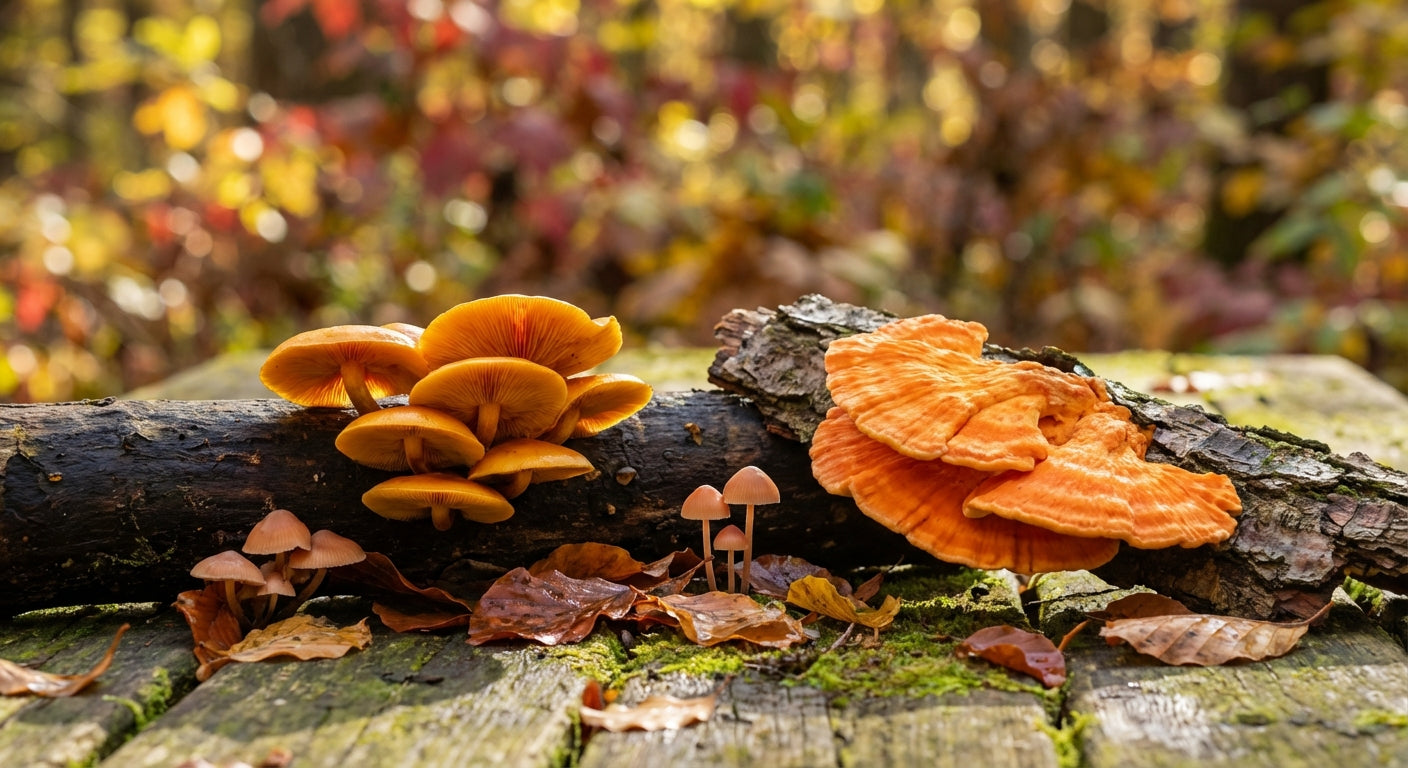
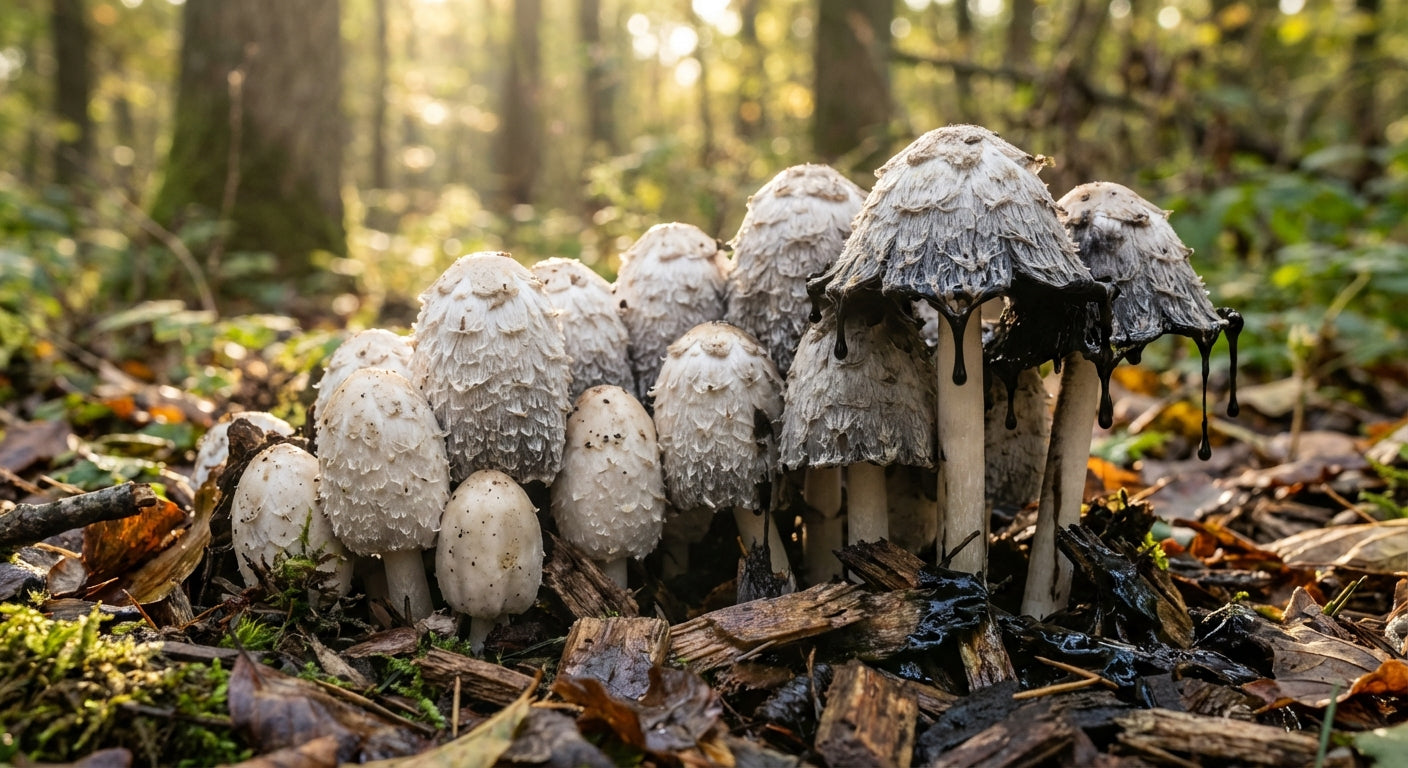
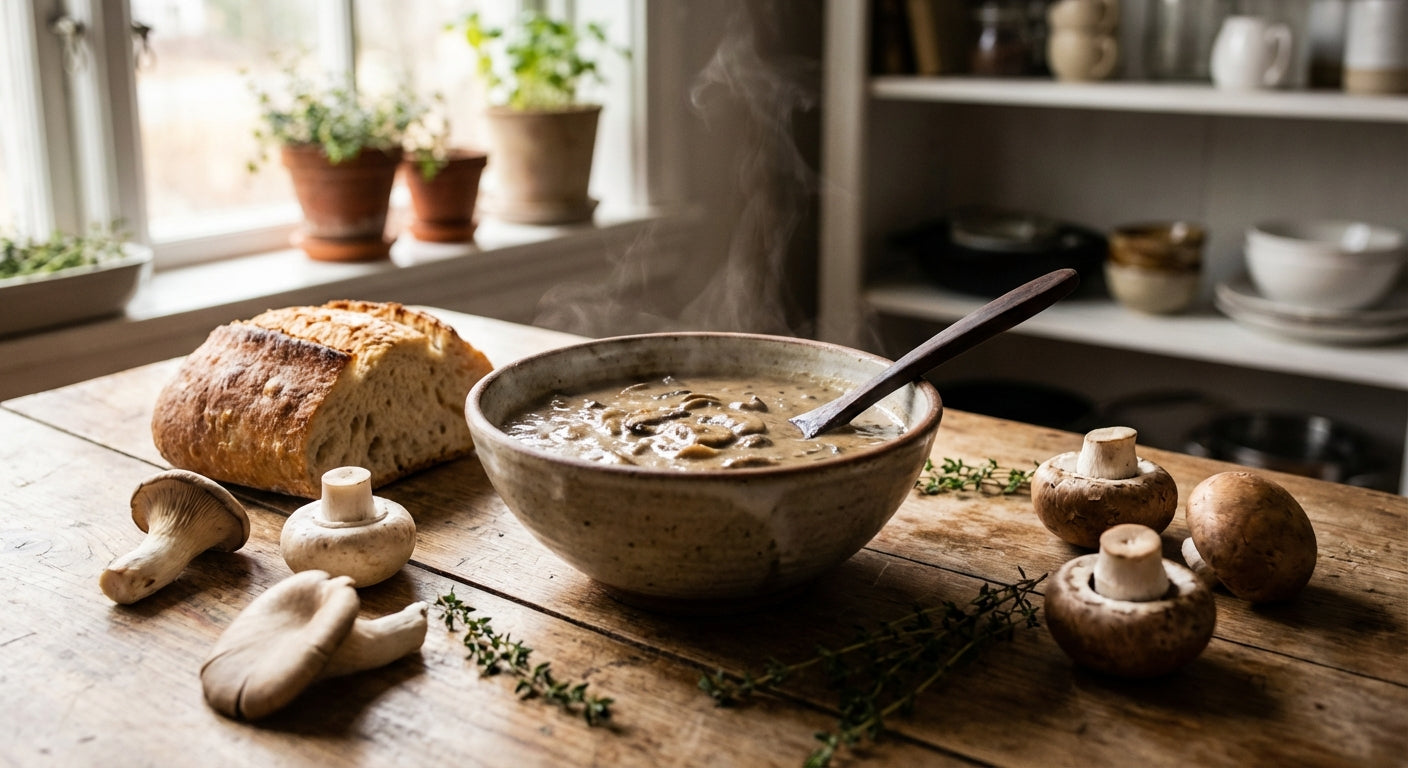
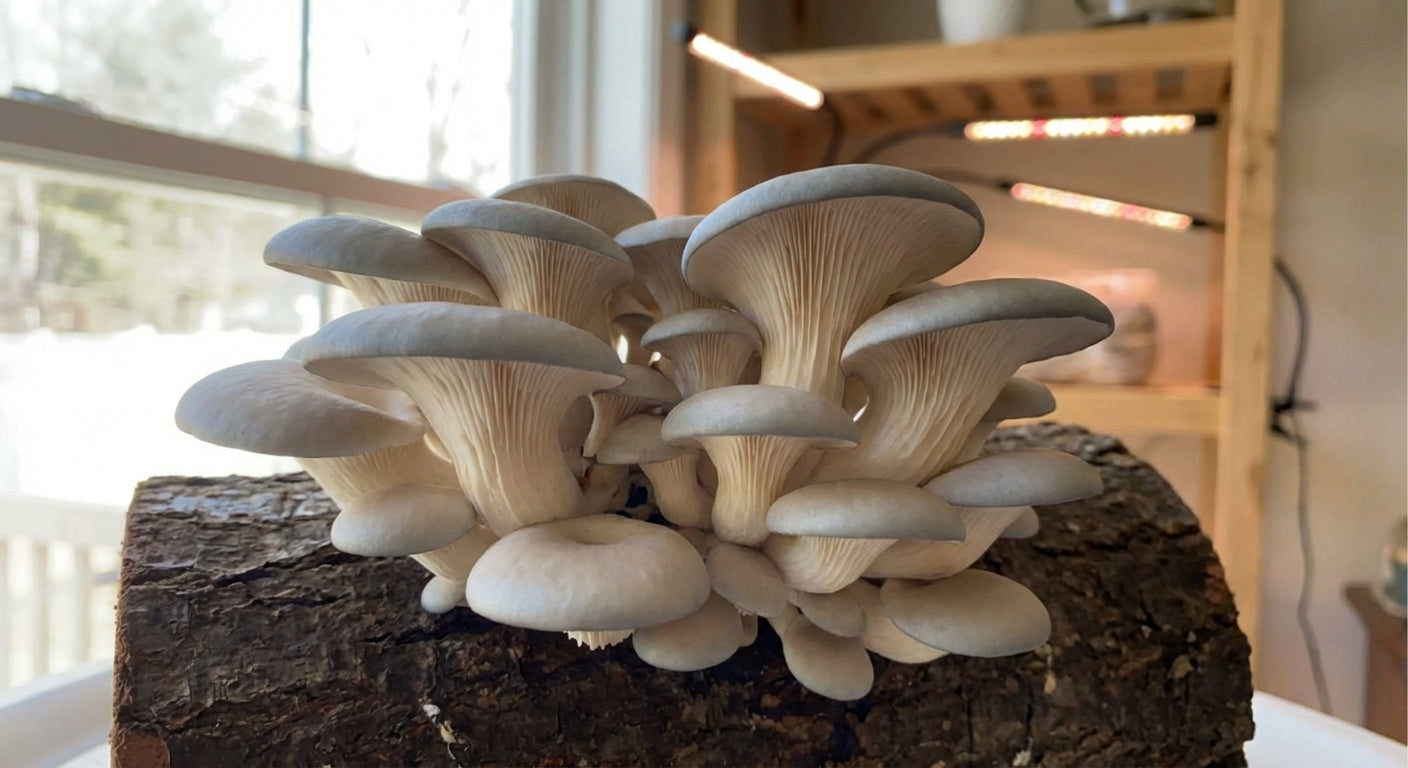







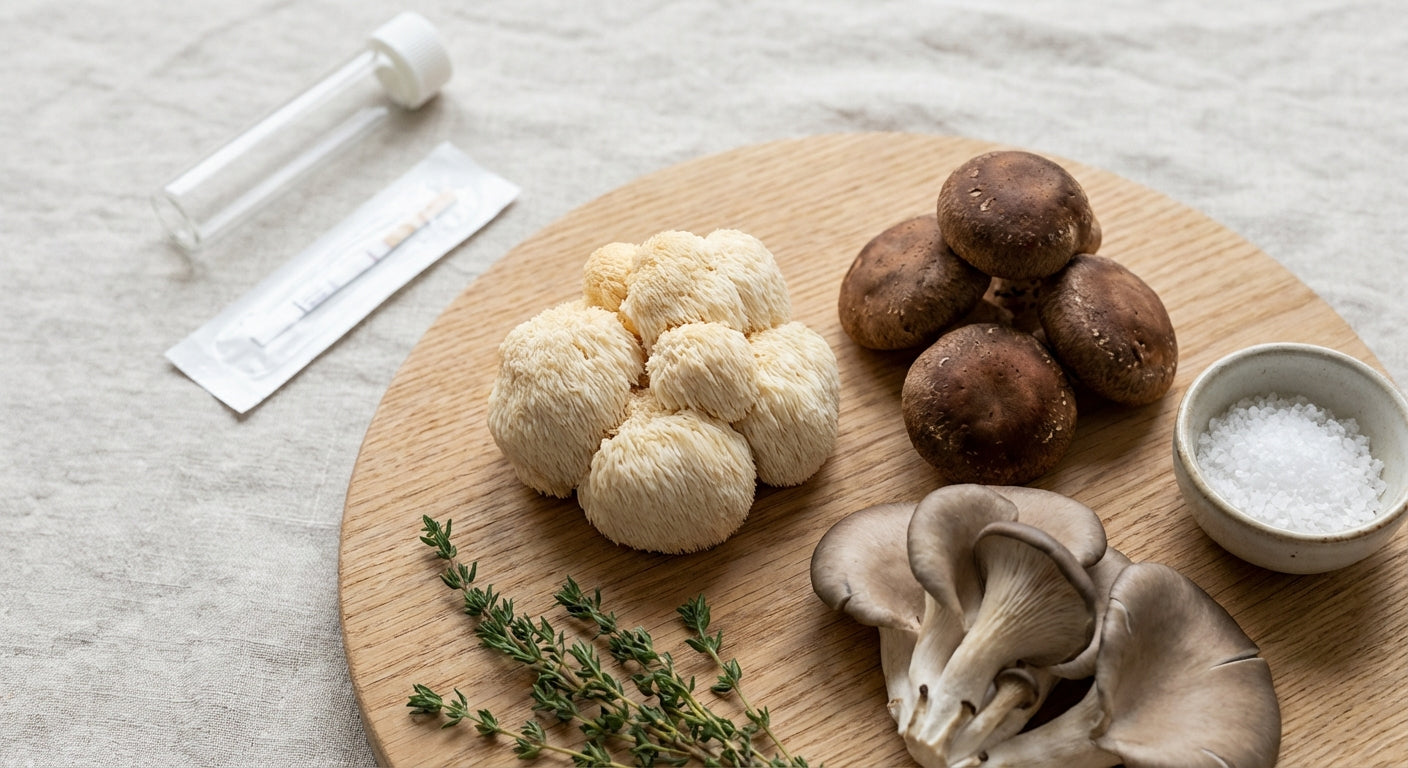
Share:
Turkey Tail Mushroom: A Secret to Weight Loss
How to Make Chaga Mushroom Tea at Home